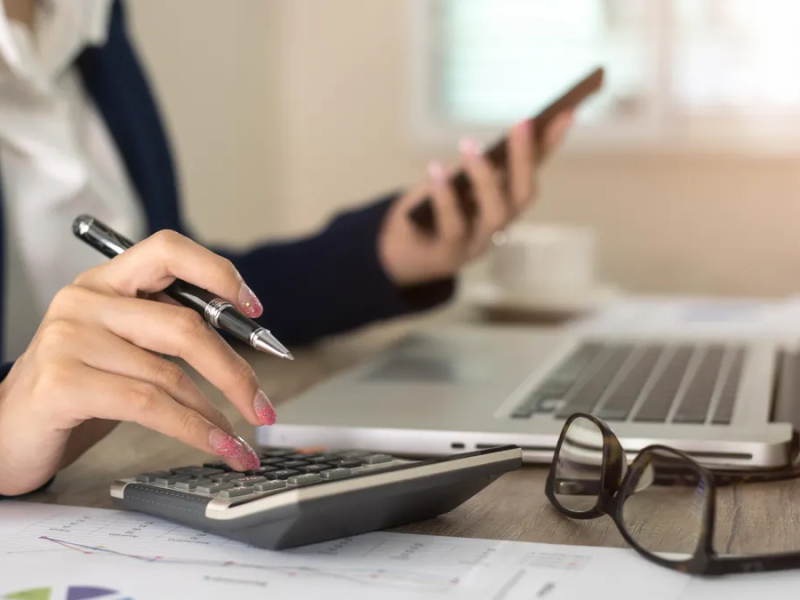
Many people believe that managing a rental property is difficult, especially if it’s your first time. Bookkeeping for landlords can be messy if you own more than five properties. If financial records are left unorganized, it can cause problems in the long run—which probably don’t affect you right now.
However, if you manage it properly, we can help you avoid issues and gain advantages such as tax deductions and saving money. Ensure that your bookkeeping is handled correctly when you hire an expert like Pearl Lemon Accountants. Our accountants for landlords provide full financial support, helping you stay compliant and maximize profits. With our bookkeepers, you can stop spending time looking for errors in your financial statements.
There are numerous tax advantages when you own a rental property, the most prominent of which is depreciation and deductions. However, you must keep essential records to prove your eligibility for certain tax breaks.
Here are a few essential record-keeping guidelines to assist you in getting through the early phases of your rental property accounting.

You no longer need to maintain all of your paper receipts in a shoebox. Make them digital! Use one of the many applications available to assist with this, such as “Bookkeeping for Landlords,” and create a record-keeping system that allows you to access records when needed conveniently.
Consider online rent collecting methods, and be sure to use a financial tracking application to simplify the financial management of your property.
Again, unless required by law, there is no reason to keep paper copies of these various sorts of papers. “Bookkeeping for Landlords” Make a point of digitising all you can and storing it in your digital filing cabinet for tax and auditing purposes.


Keeping financial records may appear absurd to smaller landlords. After all, it’s a steady source of money. “Bookkeeping for Landlords” is essential. You are paid a certain sum each month, which you must report on your Self Assessment return in January of each year.
Why is record keeping even required? Here are some reasons why:
The government requires it. “Bookkeeping for Landlords” As previously said, it is all about taxes. We describe precisely what you must preserve and how long below, but this is a fundamental aspect of the Self Assessment requirements.
Calculating your expenses. You might be investing a little money here and there to pay for things like a new fridge for your tenants or small maintenance. “Bookkeeping for Landlords” You may think these are insignificant enough that you don’t bother noting them. However, they can pile up and minimise your tax bill.
Accurately claiming tax relief, Bookkeeping for Landlords, enables private landlords to claim finance cost relief at the basic income tax rate (20%). This can minimise the tax you pay depending on your circumstances and the number of your expenses.


Making Tax Digital (MTD) is a government program aimed at creating a fully digital tax system in the UK. The initiative aims to make tax administration more efficient and user-friendly by implementing a digital tax system. “Bookkeeping for Landlords” is an essential aspect of this initiative, as it helps landlords maintain accurate financial records and comply with tax regulations more easily.
All landlords with a combined property or business income of £10,000 annually will be subject to MTD for Income Tax requirements. Bookkeeping for Landlords MTD for Income Tax will replace the present method of completing an annual Self Assessment tax return for these landlords.
Landlords with a combined company and property income of between £1,000 and £10,000 per year must continue to file annual tax returns using the Self Assessment system.
If you are a landlord with a combined property and company income of £10,000 or more per year, you must comply with MTD for Income Tax laws beginning April 6, 2024.
HMRC will require you to use the software under these rules:

Bookkeeping for Landlords is the recording of financial transactions for individuals or corporations. These records are what entrepreneurs can use to examine their company’s financial performance, often known as accounting. This is why it is important to ensure that bookkeeping should be done correctly.
Here are a few simple tips to help you better visualise how your banking structure should be built up as your real estate investing business grows and scales.

Landlords who manage and rent out only one property frequently believe they do not need to separate their personal and business accounts. However, “Bookkeeping for Landlords,” combining personal and corporate transactions into a single account can make reconciliation more complex in the long run.
To keep all transactions distinct, it would be better to open separate personal and corporate accounts. Landlords simply need to pay themselves from the business account when they are ready to access their earnings.
As your business grows, “Bookkeeping for Landlords” suggests open separate accounts for each rental property you own. Your revenue and spending will be maintained separately on a per-property basis. When it comes time to reconcile, create profit and loss accounts, and file taxes, avoiding commingling will make your life much easier. Furthermore, keeping your financial data separate for each property will allow you to pinpoint any specific properties or units reducing your rental income.


Property management software “Bookkeeping for Landlords” combines all property administration functions into a single user-friendly interface. Landlords can set up online portal payments, make this the primary rent payment option, and retain better records of tenant payments. Handling charges from several sources might stymie organised processing.
Landlords, for example, may find it difficult to maintain track of payments made in cash, via bank transfer, or by check. Instead, “Bookkeeping for Landlords,” landlords would find it easier if all tenants paid using the same manner because property management software maintains all payment information in one location.
As a result, property management software can significantly improve the efficiency of your bookkeeping processes.
Using historical data to estimate future expenses is an important use of rental property accounting. 14% of challenges landlords face are unexpected maintenance issues. To avoid this, landlords must set aside a specific percentage of their rental revenue into savings each month to plan for variable or unforeseen expenses.
For example, do you know what you’ll do if maintenance prices increase in the winter? How will you handle the situation if numerous appliances must be replaced simultaneously? Setting aside these funds protects you from financial disaster. Historical financial data can help you forecast these expenditures more accurately over time.


Bookkeeping is complex, and landlords should not be afraid to seek outside assistance to reduce their labour. Overburdened with financial transactions would prevent landlords from growing their businesses and focusing on property supplier trends. So, if bookkeeping isn’t your forte, don’t be afraid to seek outside assistance to avoid costly blunders.
Our bookkeepers here at Pearl Lemon Accountants fully understand your sector. You can free yourself from being overburdened with such tasks, for we can handle them for you. Contact us today.
Our professional bookkeepers will keep accurate and up-to-date records that enable you to manage your landlord’s business finances better. We will also allow you to expedite the auditing procedure if your company is chosen.
We will ensure that your bookkeeping operations are managed efficiently. Hence, ensure that you’ll be able to keep up with any legal changes and guarantee that your bookkeeping methods are compliant.


With taxes, our bookkeepers can assist you in staying organised throughout the year and ensure that you take advantage of all available deductions and tax credits.
This can ultimately save you a lot of money regarding taxes. Rather than waiting until the last minute to do your taxes, we can guarantee that everything is organised and ready to go so that you may complete your taxes as quickly and efficiently as possible.
Our bookkeepers can be a good asset when providing advice and direction as needed. We can assist you with bookkeeping concerns, advise you on how to conserve money, and offer support when facing financial difficulties.
Bookkeeping is a time-consuming task that can consume many landlords’ time. Because landlords frequently have many other responsibilities to manage throughout the month- it’s best to seek help from a professional.
As government imposes stricter rules on landlords’ businesses, Pearl Lemon Accountants will ensure that your business can comply in every aspect. Our professional bookkeepers will work on recording each transaction and organise it. Hence, keeping it organised and avoiding any government and tax issues.
If you need other landlord accounting services besides bookkeeping, get in touch with us, and let’s discuss.

Our bookkeepers give tax advice and can handle almost any work connected to owning a land property. These jobs include basic bookkeeping, financial recording, managing loans and debt repaying, preparing financial statements, and more.
The benefit of landlord bookkeeping software is that you may save basic information about the property and the tenant. These initiatives are especially beneficial to portfolio landlords.
You will see all your revenue and costs professionally at the touch of a button without worrying about whether you have missed or forgotten to jot down an important bill or whether the criteria for claiming a particular item have changed.
Simply put, effective bookkeeping software for landlords is about professionally assessing your achievement that your accountant and, more critically, HMRC can readily comprehend.
As part of the Self Assessment guidelines, HMRC presently requires you to keep the following information:
Private landlords must follow Self Assessment guidelines, which require them to keep records for at least 22 months after the end of the tax year.
When you allow us to keep track of your finances, you give yourself more time to do your work and please more clients.
It's a win-win situation for everyone.
Aside from that, you'll also gain financial stability because your assets and liabilities are managed well enough not to cause any trouble for you in the future.
So let our experts work for you, and you won't regret it even a bit.
Book a call today to get started.
Pearl Lemon Accountants provides complete accounting services for thousands of UK & USA businesses and individuals. Our expert team handles tax planning, payroll, VAT compliance, and Troncmaster services beyond basic bookkeeping.
Office Address:
Pearl Lemon Accountants
38 Cursitor St, Chancery Ln,
London, United Kingdom WC2A 1EN
Contact Us:
© All Rights Reserved | Company Number: 10411490 | VAT Number: 252 7124 23

Accounting problems can slow down your business. Let us handle your accounting needs and give you the freedom to focus on growth. Get expert help today—book your consultation now.